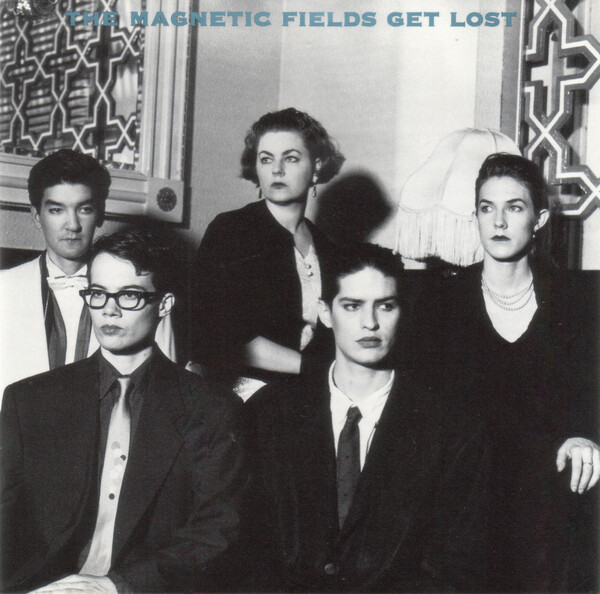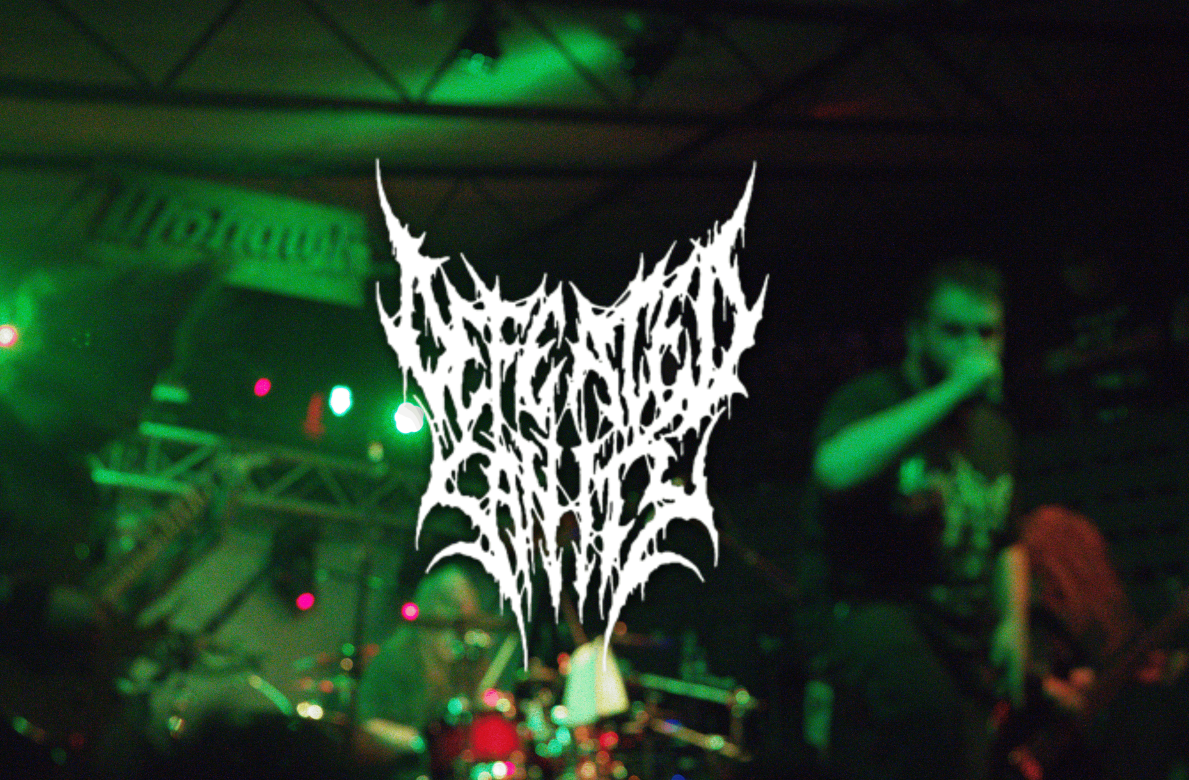The Magnetic Fields Get Lost (In the Moon)

*Content warning: This album review contains the discussion of suicide related themes. The promotional material from Merge for this record states that this album is composed of "13 songs from the worst year of Stephin's life". Sure sounds like it!
The reference points here seem to be, as always: Stephen Sondheim (who I have never explored, yet not regrettably so), ABBA (same story), Frank Sinatra, Françoise Hardy, and gay bars (regrettably lacking in this area). As per usual, a beautiful cocktail of pop music.
A quiet album, this one. Whispered nocturnal anthems, capital D Defeated melodies, capital C Cynical lyrics, foggy and hazy production; pseudo-low fidelity stuff here, that works perfectly in its favor.
Take the brilliant opener, “Famous”, for instance. “Famous” is the barn-burner of the album. It kicks open the door to your soul with a dense noise pop number which is sort of removed from the more personal, love-centric lyrics of the rest of the album. "Baby you could be famous / If you could just get out of this town", Stephin Merritt sings, with some interesting lyrics surrounding them. (Not interesting in the sense that they say something interesting, but interesting in the way that the words sort of evoke humor and wit without being particularly funny nor witty.) These general statements about our protagonist's misfortunes in fame are supposed to be funny. They're supposed to be sarcastic observations that reveal an ironic truth about life and the pursuit of Rock 'n' Roll fame. In reality, they’re hollow statements. Stuff that doesn't quite mean anything, humor that is IMPLIED. “Famous” is a perfect thesis statement for the record and a pretty flawless song all around too: Fun, repetitive but fresh, adequately atmospheric without being too sickly. Ash-flavored bubblegum.
The Changing of Summer to Fall
A review on the rateyourmusic.com website that I can't find right now points out that this album has a theme running through it: The changing of summer to fall (more broadly, the seasons changing) and the emotions that come with it. The notable mentions are:
“Why I Cry”
Quite literally contains the lyric: "Summer turns to fall / Picture on your wall". It is also the saddest song up to that point in the record, and one of the most nostalgic sounding tunes in the entirety of The Magnetic Fields’ catalog. The ukulele-esque instrumental is gorgeous, evoking the imagery of laying on a hammock tied to two equidistant, blackened palm trees in a cloudless night sky… on the beach (it's very easy to get cringe about this record).
“Love Is Lighter Than Air”
Once again, point blank begins with: "Summer, summer, summer's slowly turned into fall". This comes right after the previous song. It's also one of the catchiest melodies in the album, mixing childish mockery tunes with, again, nostalgic lyrics and some of the sadder moments on the record. For example, the chorus, which proclaims that love will dissolve once you let go of it, even for a second (which is enough to make me tear up). These guitar tones are excellent! Have I mentioned stars yet? Every ping of every guitar line and every bleep of every synth line feels just like stars appearing in the sky. Starry!
“The Village in the Morning”
These lyrics don’t span from summer to autumn, but do cover the whole stretch from summer to spring with the lines "And you could stay until the summer / And we can sleep through spring". This serves as a plea for the narrator's subject to stay with him. While “The Village in the Morning” used to be my least favorite song on the record (the current honor goes to “Don’t Look Away”), it is by no means a bad, mediocre, or even plain "good" song: It's quite fantastic! It carries the same defeatist energy of “Famous” and tones down its noisiness to sound like a proper Mags tune. This song is playful instrumentally. The synths on the track sound like slinkies rather than icicles bouncing off pavements. But man is it sad! That chorus feels like water to me, cold cold water, in the cold cold November air caving you in. As the ghostly final chorus fades away… cold, cold, cold.
The Moon
Shifting away from the record’s summer to autumn themes, I think I have to state the obvious at some point: This record is obsessed with the moon. And synths, but more relevantly, the moon. I don't really blame Merritt for that considering the circumstances; The record is all the better for it. The moon becomes a sort of muse for this album (a voyeuristic muse, in particular). In these songs, Merritt includes the Moon as a character of its own, becoming an anchor of sorts for these failing, troubled relationships that the artist has gotten himself into. Merritt famously doesn't write autobiographical songs, but it's hard to remove these from the vague context of "the worst year" of his life. The mythos works better that way. Merritt makes the Moon a central theme of three songs, and a passing, yet important, mention in one:
“You and Me and the Moon”
This is the fastest song on the record so far after “The Desperate Things You Made Me Do”, yet it somehow still has less energy than “Famous”. “You and Me and the Moon” sounds like a Magnetized mid-80s synthpop hit, lined with classic Merritt-isms ("In a cool gay bar / Where the people are / Entertaining" makes up half of the second verse and is a wonderful endorsement of gay bars if I've ever heard one). The way the lyrics bounce around with the synths adds an air of jauntiness that is so deserved for a song like this. “You and Me and the Moon” is by far the happiest song on the album (however, "happy” is a strong word… “the song that evokes the least sadness” might be more fitting). The song is very sweet, with its choruses mainly focusing on how an unnamed person lights up Merritt's life! How adorable! It's a sort of lyrical dissonance unknown to the band at this point, and a reversal of the clever "dark lyrics, bright instrumental" shtick they did in the past (see “Railroad Boy” from their debut or the last verse of “Strange Powers”) and would continue to use in the future. It's about the love that this guy brings into Merritt's life! With just the softest touch! Aww!!! The synths themselves sound like stars shining in the night sky, with each bloop and bleep being a new star glimmering into vision and falling in love with everything around them. I can’t forget to mention the amazing drum sound on this album as well.
“With Whom to Dance?”
That sure is the question, Stephin! This is the song that mentioned the moon in passing, found in its first line: “Moons in June / I’ve given up on that stuff”. This lyric also simultaneously returns to the theme of seasons. An intersectional song, if you will. It’s not moons in May, or moons in October, but moons in June. Those nostalgia-inducing summer nights that Stephin will never get back, as he is capital L Lonely and hates it. “With Whom to Dance?” is probably the most “sorrowful” song on the album. The level of melodrama in this song is almost funny, but it’s definitely one to be taken at least somewhat seriously. This track is written like a traditional pop ballad, and it has the gravitas of something Sinatra would put on In The Wee Small Hours. No one really does this sort of yearning like Stephin Merritt. The heartache in the lines “The rest of life pales in significance / I’m looking for somebody with whom to dance” is so saccharine and lonesome that it’s comical, but played so straight that it can be taken sincerely and achieve that special depressing effect as well (something that Merritt rules at. See “I Don’t Believe in the Sun” and “Take Ecstasy With Me”). I don’t think I’ve felt more conflicting emotions than when I heard the bridge: “You look like heaven / An angel who stepped from a dream / Seven hundred and seventy-seven times lovelier than anything / I've ever seen”. An exaggeration so hyperbolic it’s funny, but so real that it hurts. And the moon is there too, I guess.
“Save a Secret for the Moon”
I would call this the most dance-able song on the album by conventional standards (Because I can get down to “When You're Old and Lonely” just fine, thank you), and it does not disappoint. “Save a Secret” is definitely one of the bleakest songs in an album RIDDEN with bleakness, however it’s somehow not the most "misanthropic" song on the record. The lyrics can be condescending at points: "I know all the names of your tears" / "I know all the ‘someone someday’s / Don't believe them anyway". With a specific, scathing venom not as commonly found on the record. In my opinion, it is the most lyrically opaque song on the record. I can't really narrow down a meaning to the words. Merritt usually found ways to convey emotions through merely imagery, such as: "Write it on a black balloon / Then watch it fade from view / Save a secret for the moon". The instrumentals themselves are hard-hitting as well, with an incredibly catchy chorus and sublime intro. The static on the track sounds like water rushing and brushing against the sand on a nocturnal beach. The thumping kick drum roars like a heart being jump-started. The ensuing synths reverberating like the destruction of that very same heart. All the love being exuded rings like a theremin. Lovely and haunting all the same.
The Passage of Time
“Save a Secret for the Moon” broadly introduces the most prominent theme in the album: The passage of time. While explained through the vehicles of seasons changing or old lovers aging, this record nonetheless focuses on how time passes and the changes that come along with it. Get Lost has many through-lines connected together in an almost Cubist painting arrangement. Within all this chaos, Time seems to be the most consistent theme, appearing on over half of the track list.
“The Desperate Things You Made Me Do”
Get Lost’s second track is essentially a continuation of “Famous”’s thesis. It's most telling that Time is a central concept in this album with the opening lines: "Time provides the rope / But love will tie the slipknot / And I will be the chair you kick away". “The Desperate Things You Made Me Do” is probably Stephin Merritt's most spiteful song up (at least up until this point. “69 Love Songs” is a few years off). A macabre look at a relationship gone wrong, these lines imply that one’s time spent living will provide more and more reason to consider suicide, love will be the ultimate reason one commits, and their lover will be the catalyst. Extremely dark stuff for an extremely dark album already, but this is probably on the funnier side of this record (a side scarcely populated, mind you). And it also rips! (All the songs on this album rip, by the way! It's completely flawless!) One of the most powerful choruses of Merritt's long career, like running downhill with knives in your hands. It's exhilarating, in the way that being broken up with is exhilarating. It hurts. You understand the unreasonable pain this individual wants to inflict on the other, because love makes us want to do these things to people. Really extreme, intense love, at least. Time only serves to exacerbate the process, the intensity, the unreasonableness of these feelings.
“When You're Old and Lonely”
This ballad does the same thing lyrically, but in a significantly tamer tone. “When You're Old and Lonely” is probably the funniest song on the album, somehow. It's a drab tune, consciously absent of any color other than grey and maybe light orange, depending on the time of day you listen to it. The ethereal ukulele tune is haunting and unsettling, giving the impression that the bitterness this narrator is feeling is one of a paranormal nature. Implying suicide, implying regret. Yet, "You can call me up and say 'My God, I'm all alone / All alone'" is a humorous line. Probably an easy song to cover as well.
We now arrive at the final two songs on this album, a.k.a. two of the greatest songs ever made. Period. Full stop. Not hearing anything else about it.
The Finale
“All the Umbrellas in London”
There isn't really a good section here to talk about “All the Umbrellas in London”, because it doesn't quite talk about Time or the Moon like other songs do. In any case, it's probably the loneliest song on the album sans “With Whom to Dance”. Semi-related tangent: I was surprised to see that Merritt dislikes hip hop, saying that it is responsible for "more vicious caricatures of African Americans than in the 1800s" which is one of the worst hyperboles I've ever heard. That’s also a weird comment considering the beginning of this song is (give or take) the beginning of the Eric B and Rakim song, “I Ain't No Joke”, and this hip hop-sounding drum pattern coupled with the absolutely dense Siousxie and the Banshees-level of #goffik synths made for the most interesting combination of genres in this album (thus far!). Disappointing as that anecdote was, my love for this song has yet to wane, with every line becoming more and more relevant as I age… (Though I'm only 18 as of writing this… It feels weird to make this claim when I have most of the rest of my life ahead of me, which scares me. The way Merritt describes the passage of time as a pessimistic, never-ending hole of disappointment: I can't help but feel that this fearmongering is working on me. It sucks, and I kinda hate feeling this way, but having this excellent collection of 13 songs beside me makes me feel less alone, as cliche as it is.)
God the way the synths cascade up and down at the end of the verses: "I ride around" / "And let the darkness fall". I have no better way to write this other than DUDADUDUDUDUUUUU. This is the rainiest sounding song since that one that Jim Morrison did before he died (you know the one). “All the Umbrellas in London” is so perfectly depressing, so perfectly murky, that I have a hard time believing it's a real song. It never lets up until the sublime end, with the hyperbolic comparisons all said and done. The pain he feels is now your pain, and all of a sudden-
“The Dreaming Moon”
You hear the moon itself start crying, its tears a sort of crystal quality, as your heart pounds on the way back home from the beach. You take this endless highway into the night, never to see him again, and this makes you wonder what the world will look like in a hundred years. “The Dreaming Moon” is Stephin Merritt's finest moment, and where Time plays the most central role. It's difficult to describe exactly what aspects of this song work, when it all feels like it naturally flows together, intrinsically, intricately, other “i” words that describe qualities that are inseparable from each other (inextricable? Sure). All the cogs fit together perfectly with their counterparts. This track also contains the most interesting genre blend of the album: Ska and capital G Gothic synth pop. It's melodramatic but earnest, lonesome and full of yearning. In 100 years, he'll be right back here, with the Dreaming Moon. It truly sounds like a moon that dreams. While that’s not an image that makes any sense, it works. You can probably imagine the Dreaming Moon for yourself. Chances are you have one. One you will return with your lover to, in 100 years. Let the time pass you by and see where the moon's guidance can take you. Listen closely, for every detail matters. For when the time passes everything will be different, except you’ll still be who you are. Who you were. They'll be there...we hope.
More Like This
MORE FREQUENCY





